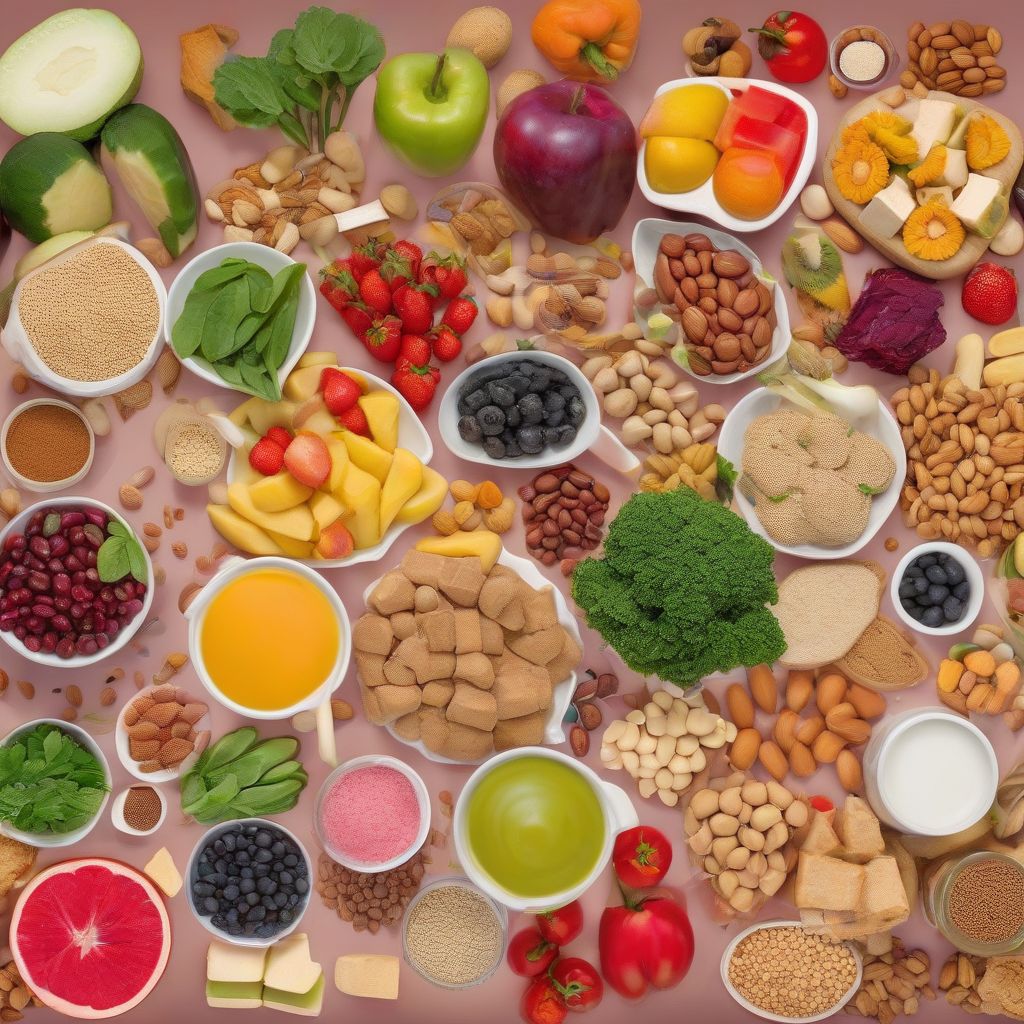Ever looked at a professional athlete absolutely crushing it on a plant-based diet and wondered, “How do they do it?” You’re not alone! As a certified nutritionist and meal prep coach, I’ve seen a surge in fitness enthusiasts choosing the power of plants. And guess what? It’s not just about ethics or the environment (though those are awesome bonuses!). Plant-based diets can genuinely elevate your fitness game.
But where to begin? Fear not, my friend. This comprehensive guide is packed with science-backed plant-based diet tips for fitness enthusiasts, empowering you to achieve peak performance. Let’s dive in!
Understanding the Power of Plants for Fitness
Before we jump into the nitty-gritty, let’s debunk a common myth: you can’t build muscle on a plant-based diet. This is completely false! Plant-based foods are teeming with nutrients that are essential for muscle growth, repair, and overall athletic performance.
Think about it:
- Protein Powerhouses: Lentils, chickpeas, beans, tofu, tempeh, edamame, quinoa – these plant-based superstars are packed with protein, the building blocks of muscle tissue.
- Carb Champions: Brown rice, quinoa, oats, sweet potatoes – these complex carbs provide sustained energy for those grueling workouts.
- Healthy Fat Heroes: Avocados, nuts, seeds, olive oil – these good fats are crucial for hormone production and overall well-being.
- Micronutrient Marvels: Fruits and vegetables burst with vitamins, minerals, and antioxidants that support optimal body function and recovery.
 Plant-Based Foods for Athletes
Plant-Based Foods for Athletes
7 Plant-Based Diet Tips for Peak Performance
Ready to optimize your plant-based lifestyle for fitness success? Let’s get practical:
1. Prioritize Protein at Every Meal
Remember those protein powerhouses? Aim to include at least one source of plant-based protein in every meal. This ensures a steady supply of amino acids for muscle repair and growth. A delicious lentil soup for lunch, a tofu scramble for breakfast, or a chickpea salad for dinner – the options are endless!
Expert Tip: Combining different plant-based protein sources in a single meal can enhance protein absorption. For example, try pairing rice and beans or hummus and whole-wheat pita.
2. Fuel Up with Complex Carbs
Don’t fear carbs, especially if you’re active! Complex carbohydrates like brown rice, quinoa, oats, and sweet potatoes are your body’s primary energy source. They provide the fuel you need to power through workouts and recover efficiently.
Expert Tip: Experiment with different types of grains and starchy vegetables to add variety to your diet. Ever tried quinoa pasta or lentil-based noodles?
3. Don’t Shy Away from Healthy Fats
Contrary to popular belief, healthy fats are crucial for athletes, especially those on a plant-based diet. They aid in hormone production, nutrient absorption, and even help reduce inflammation. Include sources like avocados, nuts, seeds, and olive oil in your daily meals.
Expert Tip: Add a tablespoon of chia seeds or flaxseeds to your smoothies or oatmeal for an extra dose of omega-3 fatty acids.
4. Hydrate, Hydrate, Hydrate
Water is essential for everyone, but even more so for active individuals. It helps regulate body temperature, transport nutrients, and flush out waste products. Aim to drink water consistently throughout the day, especially before, during, and after workouts.
Expert Tip: Add slices of lemon, cucumber, or mint to your water for a refreshing flavor boost.
5. Plan Your Meals and Snacks
One of the biggest challenges for anyone with a busy lifestyle is finding time for healthy meals. That’s where meal prepping comes in! Dedicate a few hours each week to prepare large batches of grains, beans, roasted vegetables, and salads. This way, you’ll always have nutritious options on hand.
Expert Tip: Invest in quality food storage containers to keep your prepped meals fresh and organized.
6. Supplement Wisely
While a well-planned plant-based diet can provide most of the nutrients you need, some athletes might benefit from supplementation. Vitamin B12, iron, and omega-3 fatty acids are essential nutrients that can be harder to obtain on a plant-based diet.
Expert Tip: Consult with a registered dietitian or healthcare professional to determine if you need any supplements and the appropriate dosage for your individual needs.
7. Listen to Your Body and Adjust Accordingly
Every body is different, and your nutritional needs may vary depending on your training intensity, duration, and fitness goals. Pay attention to how your body responds to different foods and adjust your diet accordingly.
Expert Tip: Keep a food journal to track your meals, snacks, and how you feel after eating. This can help you identify any potential food sensitivities or areas for improvement.
Real People, Real Results: Plant-Based Athletes Leading the Way
Need some inspiration? Look no further than the growing number of professional athletes thriving on plant-based diets:
- Venus Williams (Tennis Champion): Adopted a plant-based diet to manage her Sjögren’s syndrome and continues to dominate on the court.
- Novak Djokovic (Tennis Star): Credits his plant-based lifestyle for his exceptional energy levels and recovery.
- Lewis Hamilton (Formula 1 Driver): A vocal advocate for plant-based living, citing its positive impact on his performance and the environment.
These athletes are proof that you can achieve incredible things with the power of plants!
Conclusion
Embracing a plant-based diet isn’t just a dietary choice; it’s a lifestyle change that can significantly enhance your fitness journey. By incorporating these tips and listening to your body, you can unlock a new level of energy, strength, and endurance.
Ready to fuel your fitness with the power of plants? Start by incorporating one or two of these tips into your routine today! And remember, small changes can lead to significant results over time.
What are your favorite plant-based meals or snacks to fuel your workouts? Share your go-to recipes and tips in the comments below!
[amazon bestseller=”plant-based-cookbooks-for-athletes”]
